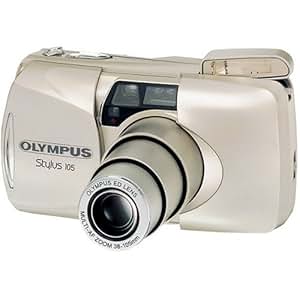Keeping an eye on your property, regardless of the weather, is crucial for security and peace of mind. Traditional security cameras rely on a constant power supply, leaving them vulnerable during power outages or in remote locations. That’s where solar-powered security cameras shine. But not all solar cameras are created equal. This comprehensive guide will help you navigate the market and find the best all-weather solar camera to suit your needs, focusing on durability, performance, and long-term reliability.
Why Choose a Solar-Powered Security Camera?

The advantages of solar security cameras are numerous. Beyond their obvious eco-friendliness, they offer unparalleled flexibility. Installation is significantly easier as you’re not constrained by the need for nearby power outlets. This makes them ideal for:
- Remote locations: Farms, cabins, and other areas without readily available electricity are perfectly suited for solar cameras.
- Power outage protection: Maintain security even during storms or unexpected power failures.
- Reduced costs: Eliminate ongoing electricity bills associated with traditional cameras.
- Discreet placement: The lack of wired connections allows for more flexible and discreet camera placement.
Key Features to Consider for All-Weather Performance
Choosing a solar camera for all-weather use requires careful consideration of several key features:
IP Rating:

The Ingress Protection (IP) rating indicates a device’s resistance to dust and water. Look for cameras with an IP65 rating or higher. This ensures protection against dust ingress and low-pressure water jets, ensuring reliable operation even in heavy rain or snow.
Solar Panel Efficiency:
The efficiency of the solar panel directly impacts the camera’s operational time. Higher efficiency panels will generate more power, even in low-light conditions, extending battery life and ensuring consistent operation. Look for panels with high efficiency ratings and sufficient surface area for optimal energy capture.
Battery Capacity:

The battery capacity determines how long the camera can operate without sunlight. Choose a camera with a large capacity lithium-ion battery for extended operation during cloudy periods or at night. Consider cameras with removable batteries for easy replacement or charging.
Night Vision:

Effective night vision is essential for all-weather security. Look for cameras with infrared (IR) LEDs providing clear images even in complete darkness. The range of the IR LEDs is also important for effective monitoring in low light.
Video Resolution and Storage:
High-resolution video ensures clear recordings. 1080p (Full HD) or higher is recommended. Consider the storage capacity – some cameras offer local storage via SD card, while others rely on cloud storage (often requiring a subscription).
Wireless Connectivity:
Reliable wireless connectivity (Wi-Fi) is crucial for remote viewing and access to recordings. Ensure the camera supports your Wi-Fi network and offers strong signal strength even in challenging conditions.
Top Solar Camera Picks for All-Weather Conditions
(Note: Specific model names and prices will need to be updated regularly to reflect current market offerings. This section provides a template for comparison.)
| Camera Model | IP Rating | Solar Panel Efficiency | Battery Capacity | Night Vision | Resolution | Pros | Cons |
|---|---|---|---|---|---|---|---|
| Example Brand Model A | IP66 | 18% | 10000mAh | Yes, 30ft | 1080p | Excellent battery life, robust build quality | Slightly higher price point |
| Example Brand Model B | IP65 | 15% | 8000mAh | Yes, 25ft | 1080p | Affordable, good features | Battery life might be shorter in extreme conditions |
| Example Brand Model C | IP67 | 20% | 12000mAh | Yes, 40ft | 4K | Excellent image quality, very durable | Higher initial cost |
This table is a sample; thorough research comparing specific models based on current reviews and specifications is recommended before making a purchase.
Installation and Maintenance Tips
Proper installation and maintenance are vital for optimal performance. Ensure the solar panel receives maximum sunlight throughout the day. Clean the panel regularly to remove dust, leaves, or snow to maintain optimal energy generation. Regularly check the battery level and replace or recharge as needed. Consider using a weatherproof enclosure for additional protection.
Comparing Solar Cameras to Other Security Solutions
While solar cameras offer several benefits, it’s essential to compare them to other security solutions like wired cameras or battery-powered cameras without solar panels. Wired cameras offer constant power but lack the flexibility of wireless options. Battery-powered cameras without solar panels require frequent charging or battery replacement, limiting their longevity. Solar cameras provide a good balance of power, flexibility, and cost-effectiveness in the long run, especially for remote locations.
Selecting the right solar-powered security camera for all-weather performance significantly enhances your security while minimizing environmental impact and long-term costs. By carefully considering the factors discussed above – IP rating, solar panel efficiency, battery capacity, night vision, video resolution, and connectivity – you can choose a system that meets your specific security needs and provides reliable operation throughout the year, regardless of the weather.